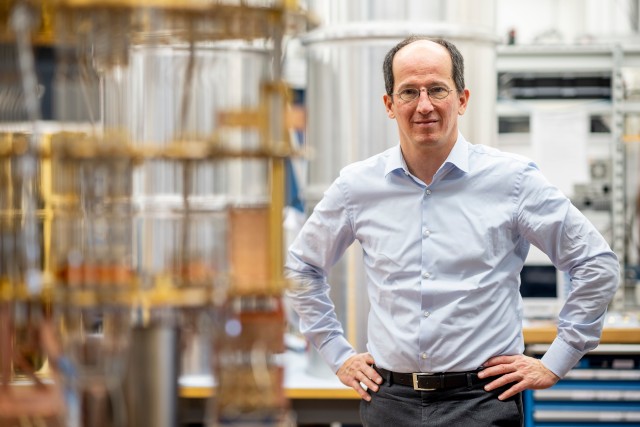14 June 2023
from 09:30
to 11:30
Seminar on "Quantum Error Correction for Quantum Information Processing with Superconducting Circuits " Prof. Andreas Wallraff (ETH Zurich).
Address / Location
TUM Institute for Advanced Study (IAS)
Lichtenbergstraße 2a
85748
Garching
Show Map
Hide Map
As
MCQST Distinguished Lecturer, Prof. Andreas Wallraff is giving a series of talks targeted to varied audiences. This specialized seminar is designed for researchers working in the same field.
Quantum Error Correction for Quantum Information Processing with Superconducting Circuits*
Superconducting electronic circuits are ideally suited for studying both the foundations of quantum physics and its applications. Since complex circuits combining hundreds or thousands of circuit elements can be designed, fabricated, and operated with relative ease, superconducting quantum circuits are one of the prime contenders for realizing quantum computers. For fault-tolerant operation, universal quantum computers must correct errors occurring due to limited control accuracy and unavoidable decoherence. Therefore, quantum error correction is a prime target of current research and development across academia and industry. Recently, our Quantum Device Lab at ETH Zurich has demonstrated quantum error correction in the surface code. Using 17 physical qubits in a superconducting circuit we encode quantum information in a distance-three logical qubit. In an error correction cycle of only 1.1 µs duration, we demonstrate the preservation of four cardinal states of the logical qubit with a logical error probability of only 3 % per cycle [1]. In the process, we detect both bit- and phase-flip error syndromes and decode using a minimum-weight perfect-matching algorithm in an error-model-free approach. In this talk, I will discuss characteristic error syndromes and their effect on the performance of our implementation of the surface code. One of the dominant errors limiting the performance of quantum error correction codes across multiple technology platforms is leakage out of the computational subspace, originating from the inherent multi-level structure of many qubit implementations. Therefore, I will discuss our recent experimental progress in effectively mitigating leakage errors in superconducting circuits. The demonstration of repeated, fast, and high-performance quantum error correction, and the continued improvement of device performance supports our understanding that fault-tolerant quantum computation will be practically realizable.
[1] S. Krinner, N. Lacroix et al., Nature 605, 669–674 (2022)
*This work was done in collaboration with Sebastian Krinner, Nathan Lacroix, Ants Remm, Agustin Di Paolo, Elie Genois, Catherine Leroux, Christoph Hellings, Stefania Lazar, Francois Swiadek, Johannes Herrmann, Graham J. Norris, Christian Kraglund Andersen, Markus Müller, Alexandre Blais, Christopher Eichler, and Andreas Wallraff.
About Andreas Wallraff

For more information see the group's webpage.